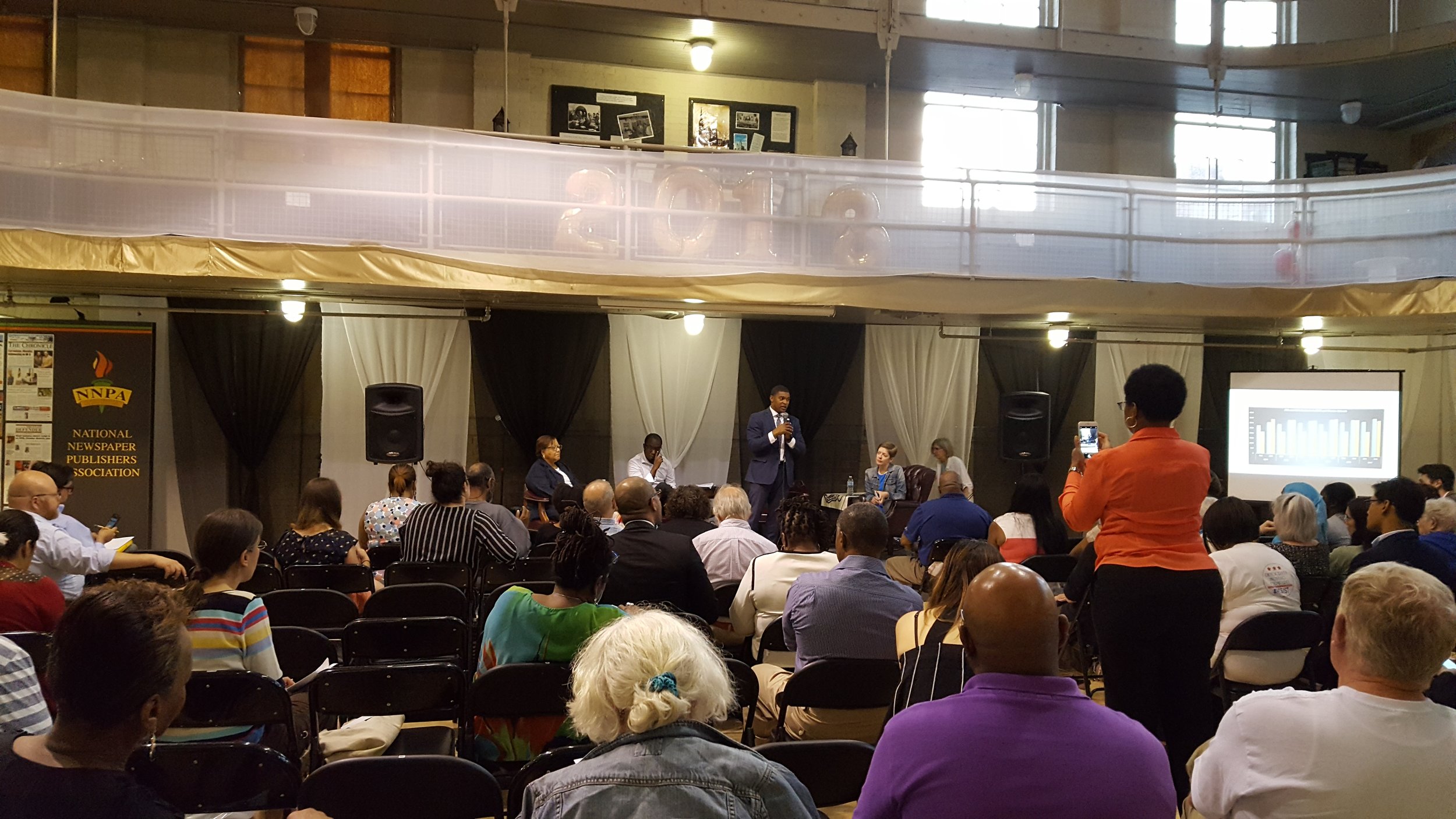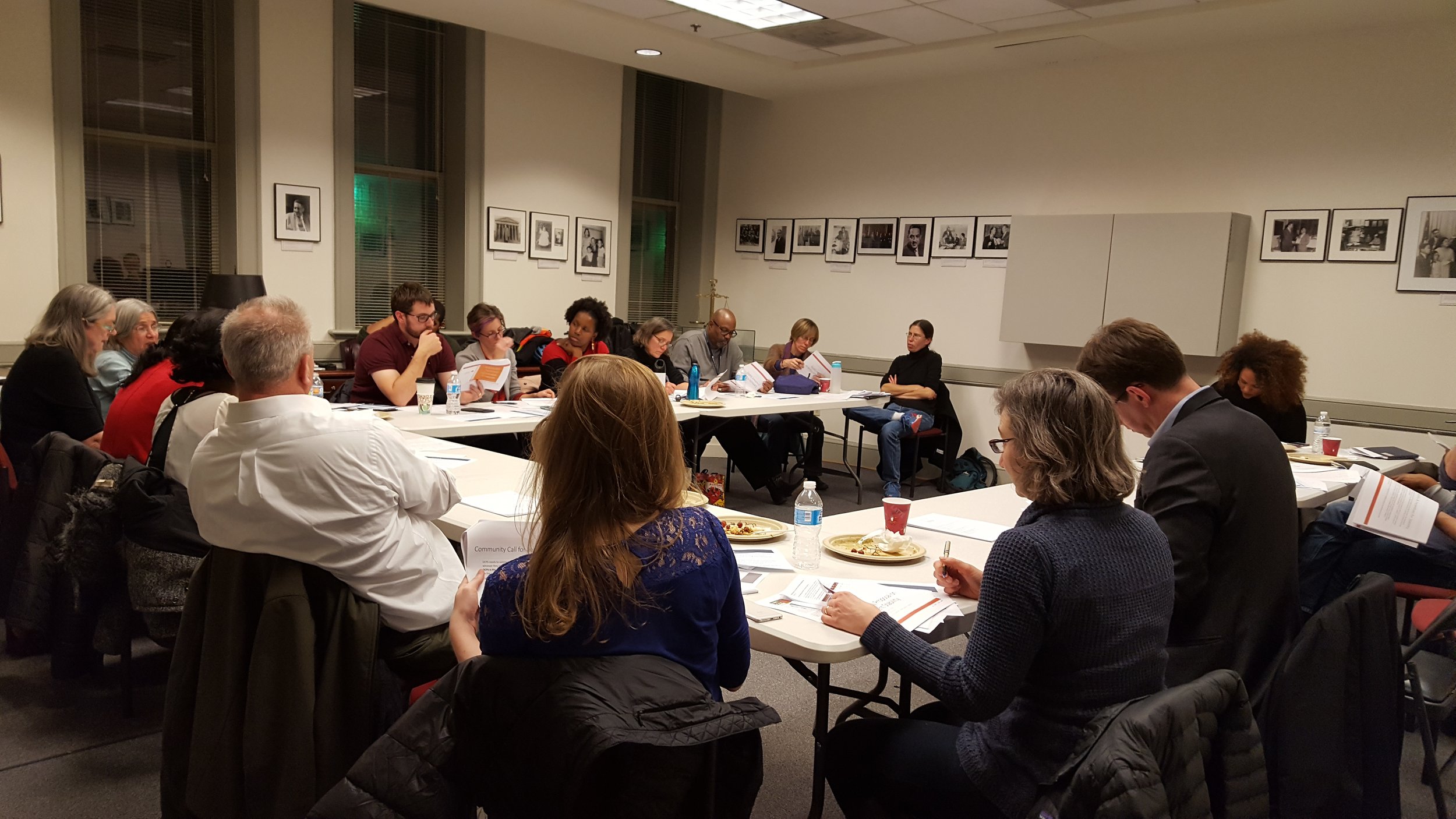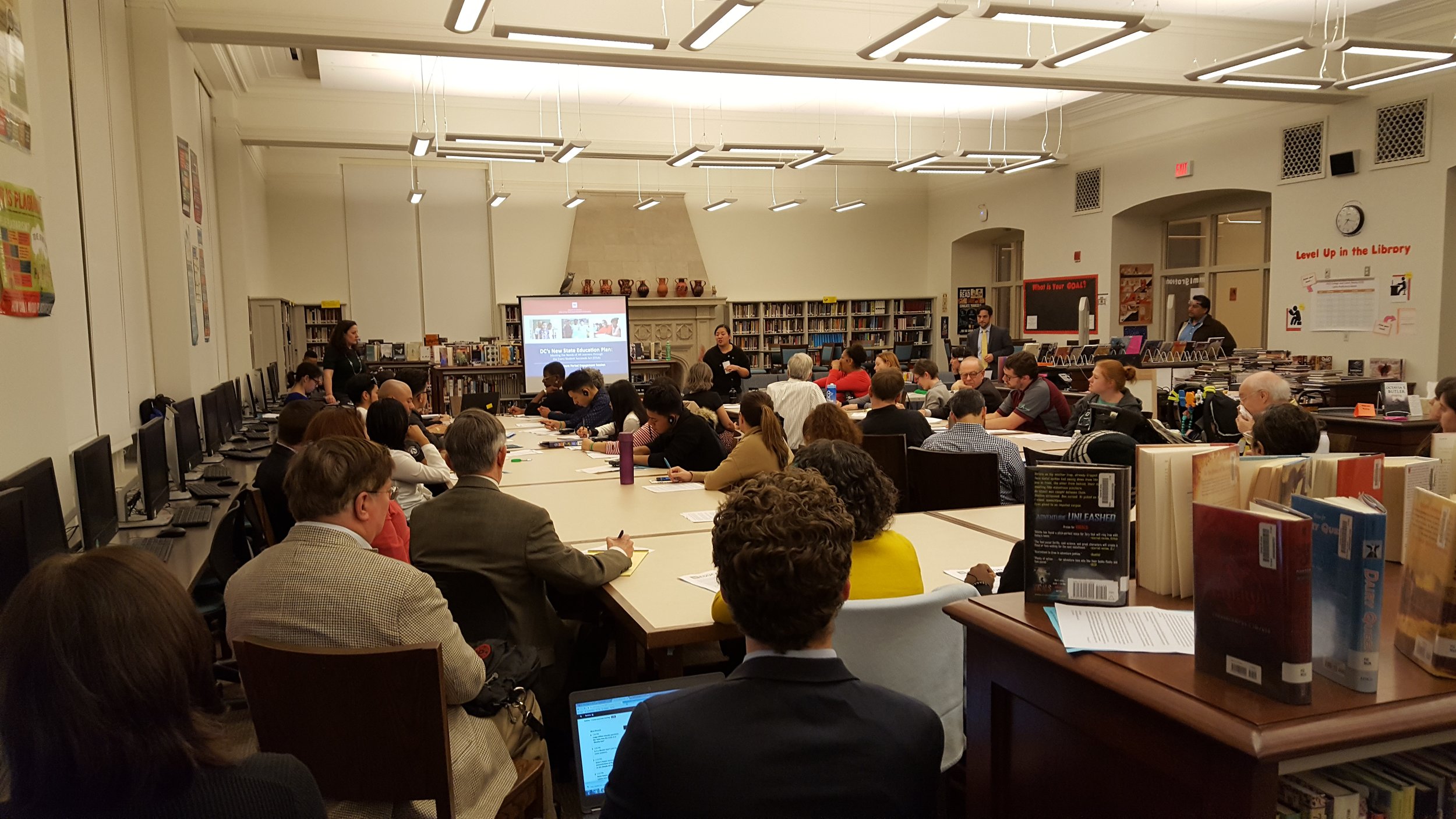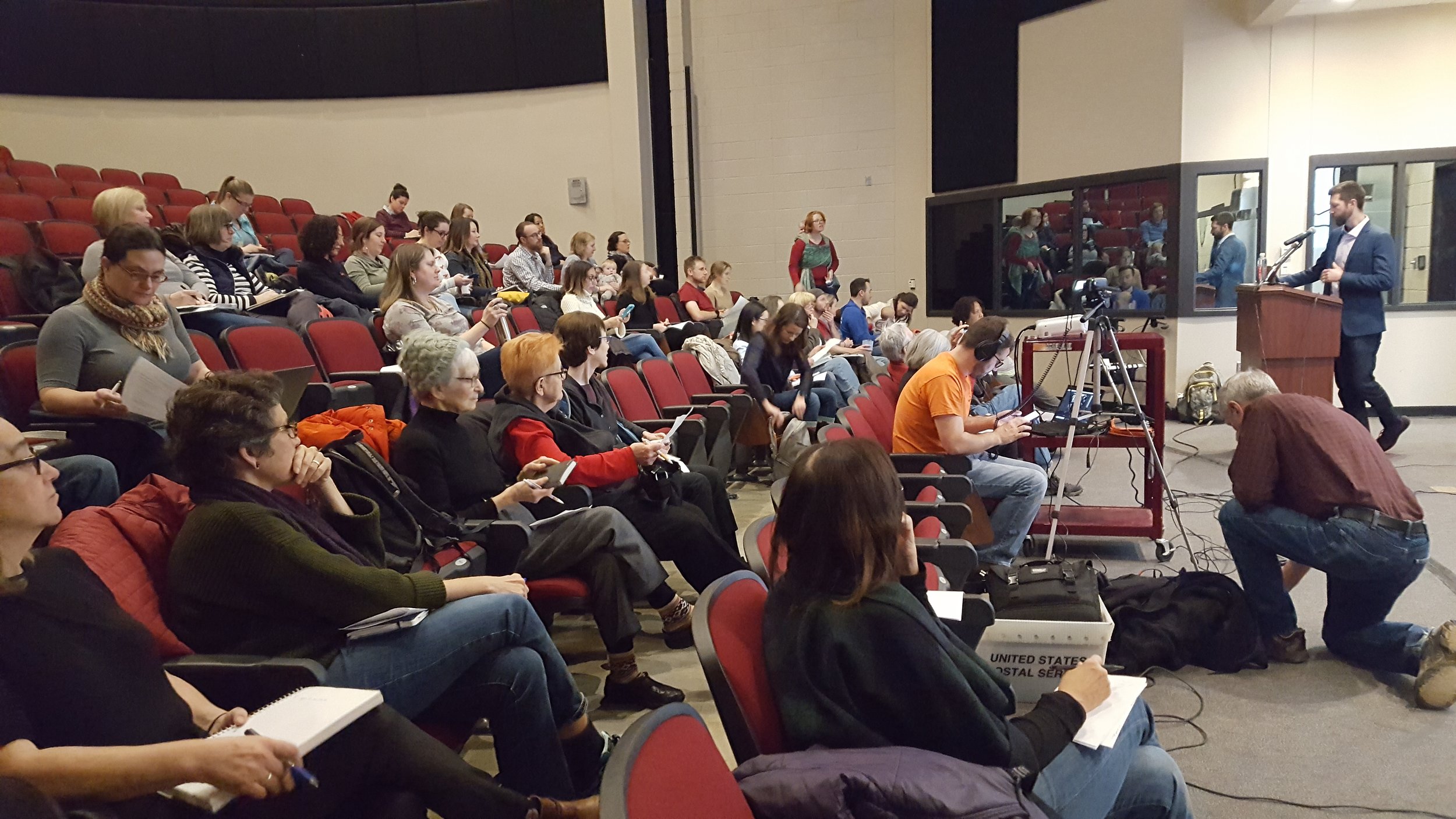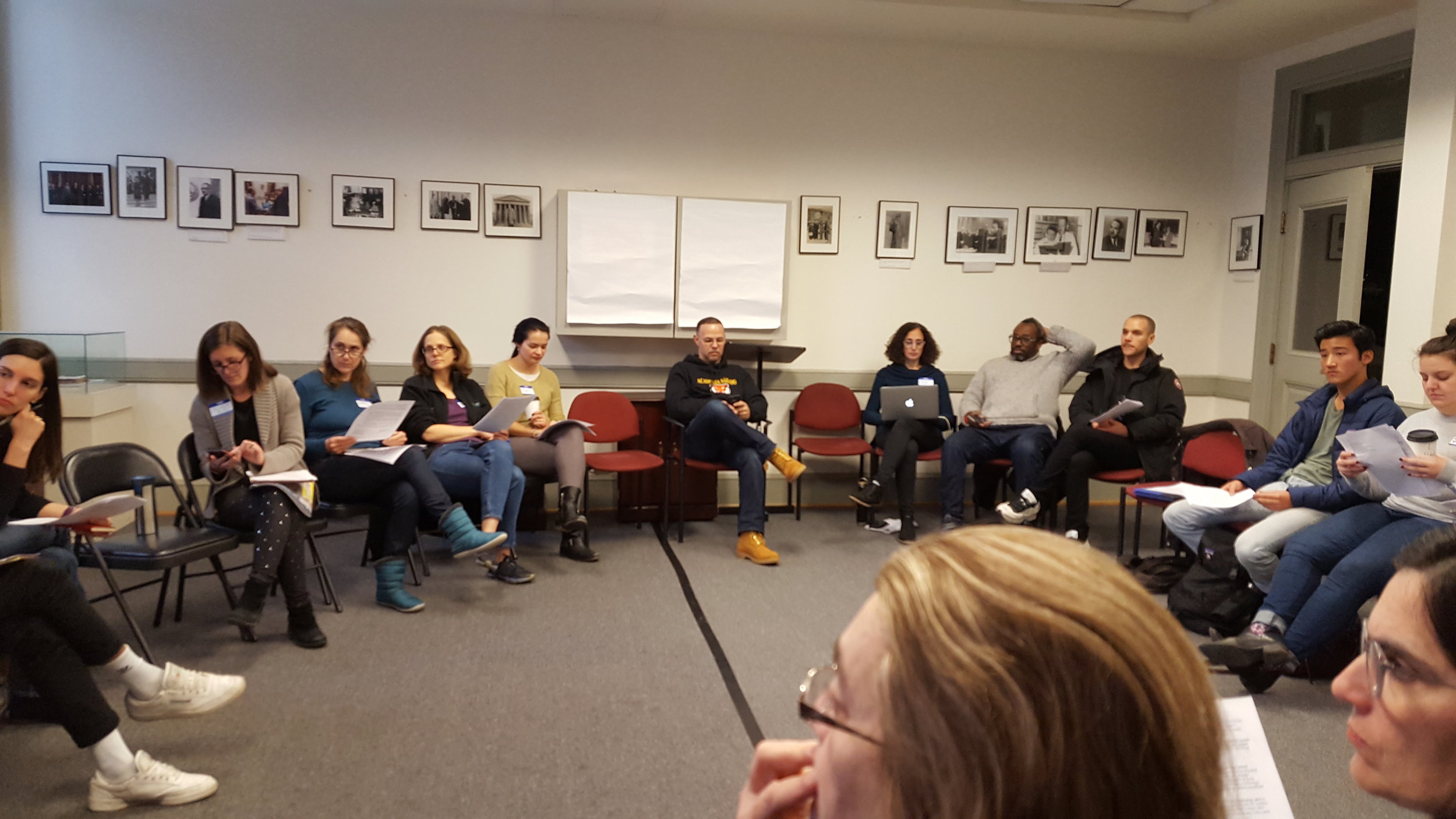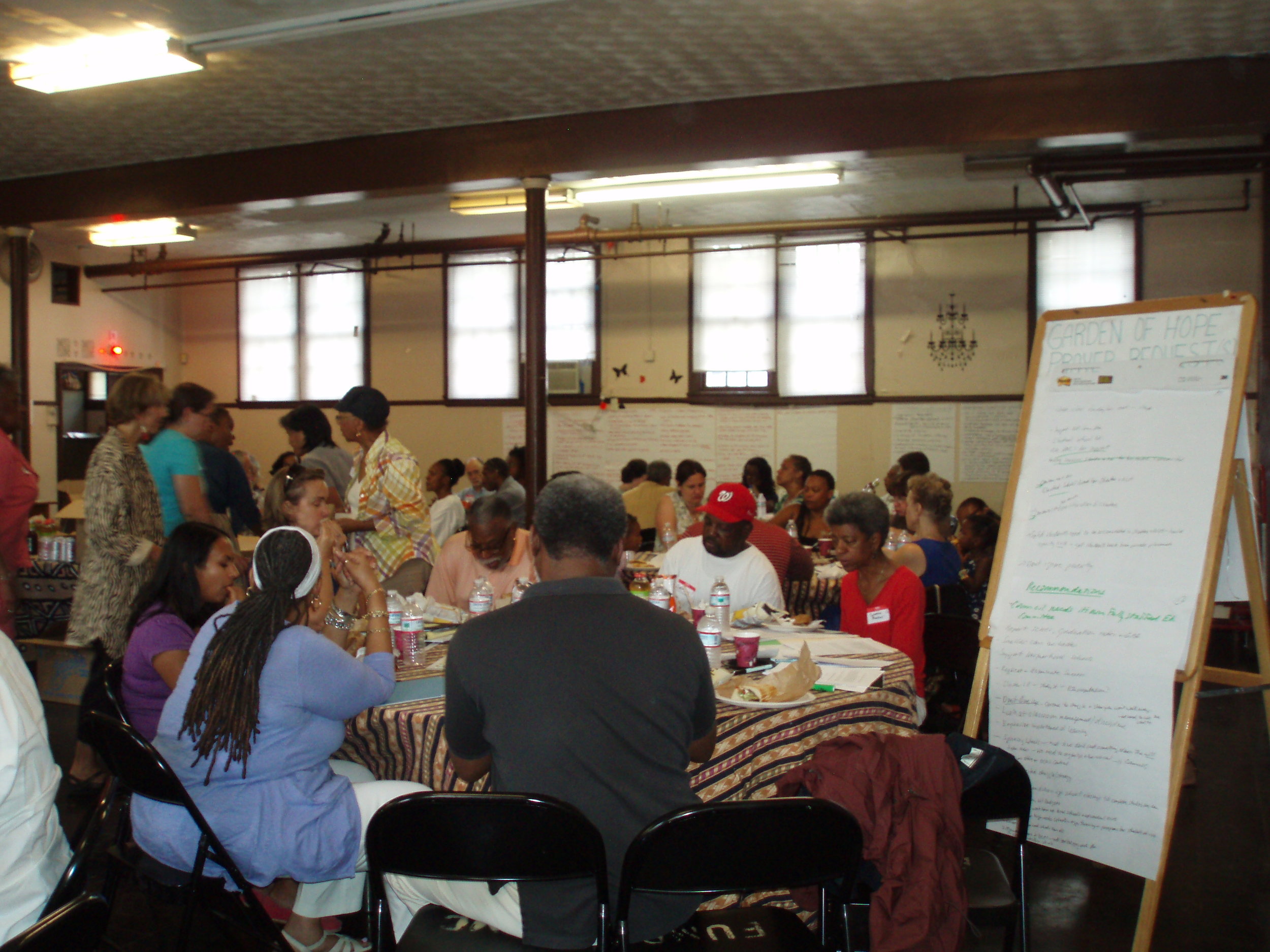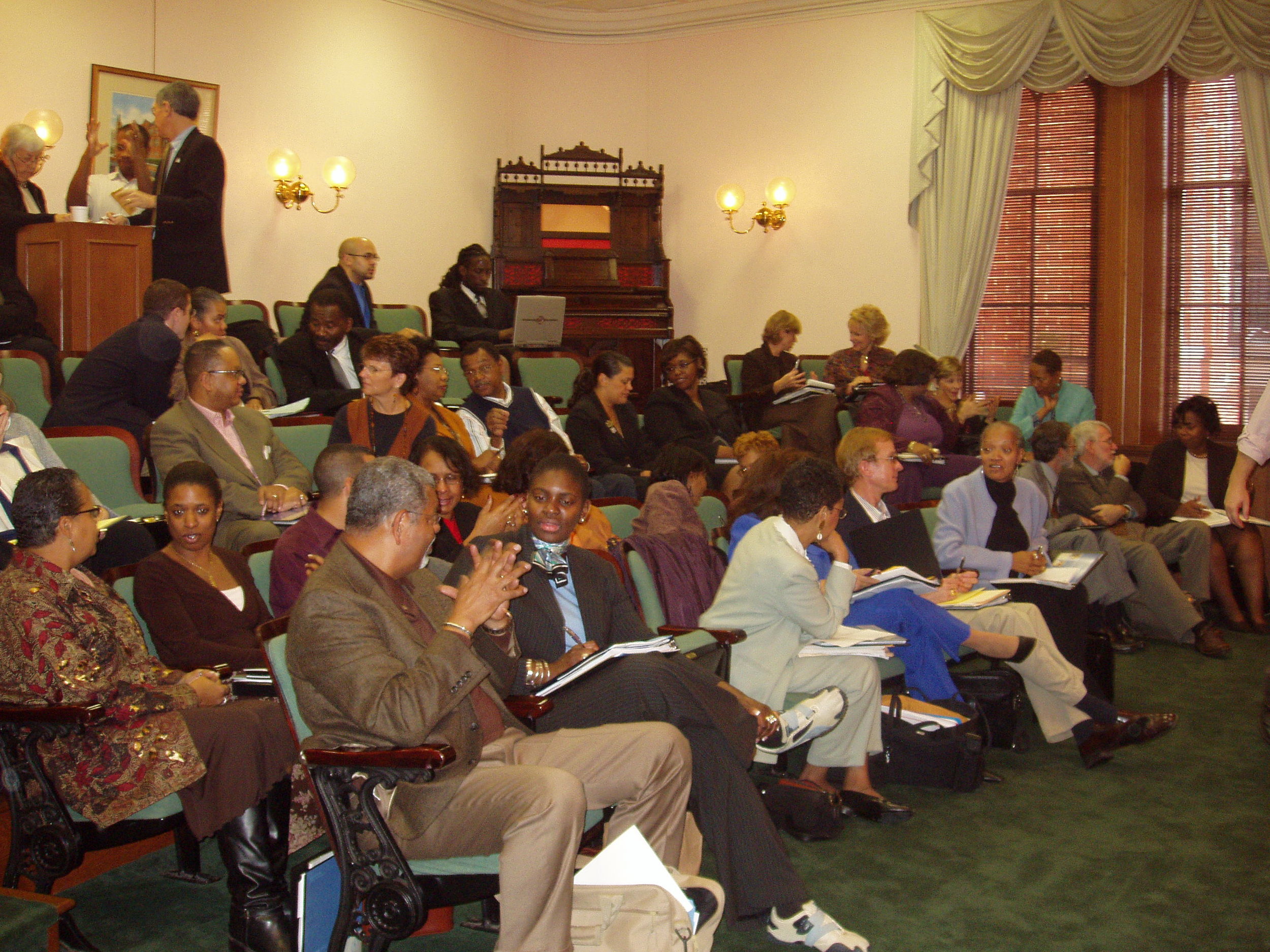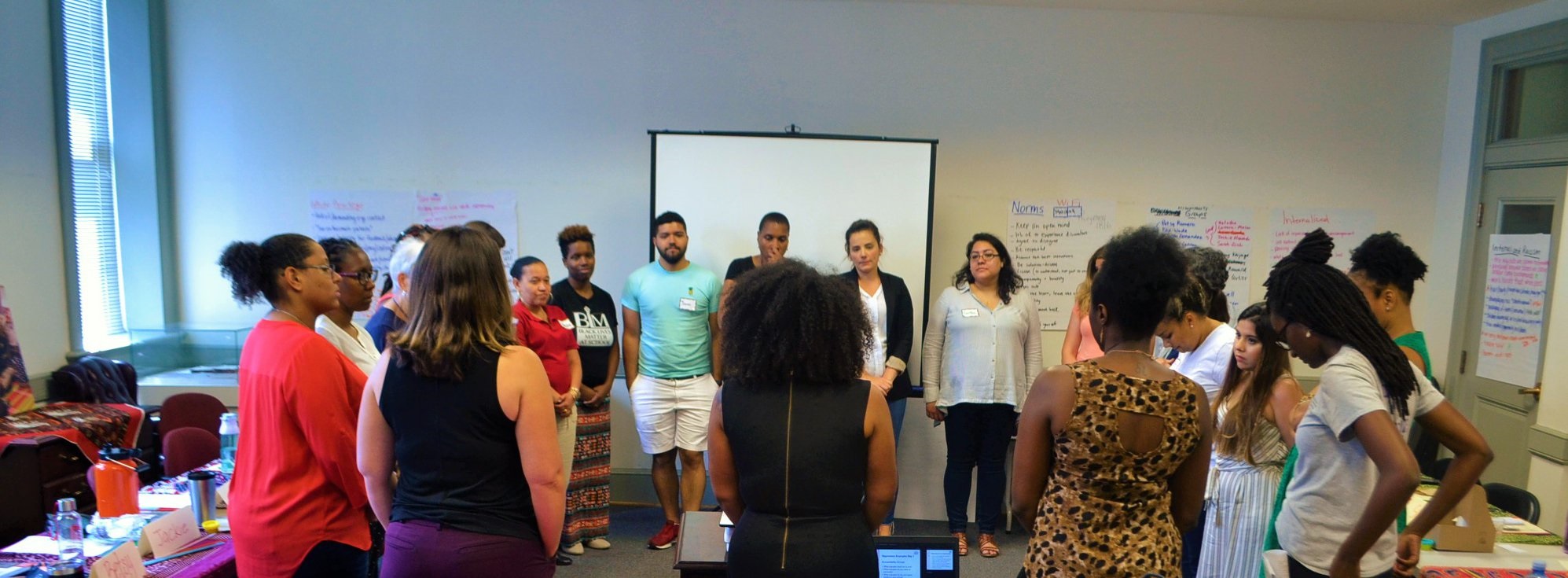Valerie Jablow testimony at 12-5-24 Council hearing on Eagle Academy Closing
/My name is Valerie Jablow. I am testifying about charter oversight that has failed DC citizens—very notably with Eagle Academy. My testimony is based on my work following DC publicly funded schools as publisher of educationdc.net.[i]
Many DC government actors knew Eagle’s fiscal and other problems since at least 2017. As my written testimony details, residents documented and presented those problems to Eagle; the charter board; DC agency personnel; ANCs; the council; and the prior attorney general.[ii]
Yet it wasn’t until 2024 that Eagle was subjected to much greater scrutiny by the charter board. In fact, as I pointed out to Chairman Mendelson and COW staff, the charter board repeatedly misrepresented its actions and oversight in its September 9 response to Chairman Mendelson’s August questions around Eagle.[iii]
The bottom line is that oversight of DC charters is poor; obfuscating; and actively excludes the public. The charter board’s fiscal oversight processes omit important data and are not publicly centered, essentially requiring DC citizens to act as forensic accountants to track problems while no one is conducting real oversight of our charter sector.[iv] And while having another LEA take over Eagle seems better than closure, that doesn’t address that what happened with Eagle is largely because many DC actors obfuscated and ignored serious problems--and continue to do so.
Here are some of those ignored problems at Eagle:
--Poorly publicized board meetings, with no one apparently telling Eagle parents until June 2024 about fiscal issues.[v]
--No apparent offering of Eagle’s pool to the public, as its lease with DC specified—and no promised health clinic either, along with DGS not tracking work done for Eagle’s rent credits there for at least the last 3 years.[vi]
--DC revenue bonds awarded to Eagle in 2016, while Eagle’s subsequent illegal construction, liens and fines, and nonpayment of property taxes appeared to violate the bond agreement.[vii]
Nothing done or posted by any DC agency fixed, much less mentioned, any of those problems, including the charter board’s annual financial analysis reports (FARs). The FARs also do not mention Eagle’s
--less than 15 days cash on hand for 6 of the last 8 years;[viii]
--interest-bearing loans from staff members;[ix]
--outsize travel and marketing budgets;
--CEO Joe Smith’s annual salary being more than the mayor’s; and
--how in its summer 2022 application to expand grades and its May 2023 application to do the same, Eagle stated that the expansion would “improve its finances.”[x]
No official acknowledgement of ANY of those problems allowed the charter board to give Eagle a pass in both its 15- and 20-year reviews, prioritizing a private organization at public expense and without public sunshine.[xi] It is thus likely similar problems are happening at other DC charter schools.
In my written testimony, I outline ways to prevent all of this,[xii] including
—Strict enforcement of upper and lower limits for LEA cash on hand;
—Public-oriented FARs and truly independent audits; and
—Public and timely posting of charter board finance committee meetings; notices of fiscal concern; and fiscal monitoring lists.
It is vital to understand that what happened with Eagle did not have to happen. Its problems were not uniquely bad and were known by many DC actors.
And as bad as Eagle’s closure was, what led to it--oversight that prioritized a private organization over DC kids and residents—is much worse. It is actively aided by the charter board’s compromised position as a regulator, as it is also a trade organization funded by enrollment at the entities it regulates.
Thank you for holding this hearing.
FOOTNOTES
[i] As a DC resident since 1991, I am not supported by or affiliated with any organization or government agency.
[ii] The spreadsheet here contains a detailed outline from 2013 on of Eagle’s actions and problems--and what residents did to notify various DC government actors: https://docs.google.com/spreadsheets/d/131afSI0lnOT74KMkPXPBEbxPOfaLZZ-U/edit?usp=sharing&ouid=106488664687330576324&rtpof=true&sd=true
[iii] The timeline of the charter board’s 2024 scrutiny of Eagle is troubling--and highlights how deceptive the charter board’s 9/9/24 response to Chairman Mendelson’s August questions is:
The charter board placed Eagle on a fiscal monitoring list in November 2019, then removed it in May 2021. Then, in June 2023, the charter board placed the LEA back on its fiscal monitoring list. That was just 6 months after the charter board approved Eagle’s continuance in its 20-year review, which made no mention of fiscal problems.
That information about Eagle on the fiscal monitoring lists is otherwise unavailable to the public except as revealed by the charter board in its September 2024 response document to Chairman Mendelson’s August questions.
The charter board’s 9/9/24 response document noted that the charter board continued monitoring Eagle through 2023 without too much concern, even as a staff member for Eagle testified at the charter board’s July 10, 2024 hearing that some staff at Eagle became aware of fiscal problems and the need for financial correction in October 2023. The first round of Eagle’s staff cuts was in December 2023. (See pp. 63-4 of the 7/10/24 transcript here: https://dcpcsb.egnyte.com/dl/iLmlTvhznf)
The charter board’s 9/9/24 response document also noted that no FCAP (financial corrective action plan) was proposed in January 2024 because the charter board had not yet gotten FY2023 audited financial statements.
Yet on p. 2 of the charter board memo for the July 10 board meeting (https://dcpcsb.egnyte.com/dl/hDQvAiaA9S) it says that “the school’s audited financial statements, issued on January 18, 2024, reflected 23 days of cash on hand as of fiscal year end (FYE) 2023, below the 30-day floor for this measure.” The memo went on to note that Eagle had only 6 days of cash on hand as of June 28, 2024.
That 7/10/24 board memo also made clear that the school’s liquidity had “deteriorated significantly” by the end of February 2024 and that immediate action needed to be taken by the end of March 2024 if Eagle was going to survive for SY24-25.
But no FCAP was issued for Eagle until July 2024—and the 9/9/24 response document appeared to justify that delay!
Moreover, that charter board 9/9/24 response document entirely omitted the 2021 creation by Eagle of two outposts in other states (Nevada and Ohio) that depended on DC Eagle Academy staff and processes.
***The council needs to ask why the charter board began its most serious scrutiny of Eagle in DC only after Nevada began in March 2024 to investigate Eagle there for misappropriating more than $800,000 of Nevada public funds.
[iv] Nonspecific oversight resides in how DC has structured its charter sector. While the mayor nominates charter board members and the council confirms them, there is little to no role of either the mayor or council in ensuring they fulfill their duties or, if not, in removing them. (See what happened with Tom Nida as an example.)
The charter board members in turn are responsible for the hiring and firing of the charter board executive director, who is responsible for the charter board staff.
BUT none of these people is directly responsible for oversight of ineffective or problematic boards of LEAs; problematic LEA CEOs; and problematic LEA practices. Worse, they have construed their duties in service of LEAs, not the public.
Consider:
--There was literally no charter board response to testimony at the July 10, 2024 charter board meeting, when the acting head of school noted (at the 1 hour, 11 minute mark or p. 63 of the meeting transcript) that Eagle’s finances were never discussed publicly. A few minutes later, Eagle’s board treasurer noted that she had no knowledge of the school’s finances except as presented to her by CEO Joe Smith (see p. 72 of the July 10 transcript).
--At the November 18, 2024 charter board meeting (the first of three planned presentations by the charter board about fiscal oversight of charters), the charter board’s presentation never mentioned Eagle; the fact that posted fiscal data, including LEA budgets, is lagging; nor that charter school leases, represented as being on the charter board website, not only are NOT on the charter board website, but that charter leases for privately owned buildings may not be available even by FOIA request.
As it is, the 11/18/24 charter board presentation was posted only on the morning of the 11/18/24 meeting, and most board member queries functioned to validate the charter board’s current fiscal practices. There was literally nothing mentioned that would have changed oversight of Eagle—and it was all presented as sound practice.
Worse, at several points of the 11/18/24 charter board meeting the implication was that the public had a duty in oversight but did not always responsibly exercise it (i.e. at min 36:43 COO Henderson noted that “the information is available for the public that chooses to engage”--italics mine). When at minute 49 board members ask about what the charter board does to ensure individual LEAs have good boards, there was no good answer.
Such diffuse layering of responsibility and oversight means that DC elected and appointed officials can walk away from charter problems even as important information is omitted or obscured by the charter board.
It also means that DC citizens often have no place to go when problems arise and no way to find information when they need it. The charter board has meetings once a month, where the public can testify for 2 minutes apiece. Charter parents can also raise concerns directly with charter board staff. But the extent of concerns and the response to them is not clearly publicly delineated OR subject to any oversight.
And that is not even touching on oversight of fiscal problems, from which the council and mayor are almost entirely insulated until there is a scandal. Consider that at the April 5, 2024 budget hearing for the charter board, its executive director was questioned for 26 minutes around a sector receiving $1 billion annually in DC taxpayer funds.
Then, too, there is the fact that the charter board has a literal fiscal interest in charter saturation and continuance. That is because charters pay the charter board an annual fee that is based on their enrollment. So there is fiscal incentive to keep a substandard charter going.
***The council needs to ask why the charter board never voted to rescind Eagle’s charter, despite ample evidence early in 2024 of Eagle’s imminent financial failure, instead waiting until August to vote on what Eagle and Friendship wanted.
[v] In 2022, I provided testimony for the charter board around Eagle’s abysmal (and ILLEGAL) non-publicizing of its board meetings: https://drive.google.com/file/d/1SDDEuK2--KrokMEAH884NWMU3MjiMgPP/view?usp=sharing
I also filed a complaint with BEGA about this (here’s what they had to say: https://drive.google.com/file/d/1CBI-LtqgWeu31Jn3SGDfxrhf4-7p3VXn/view?usp=sharing).
Despite all this evidence, neither Eagle nor the charter board changed anything.
An Eagle staff member testified at the July 10, 2024 charter board meeting that families were notified only in June 2024 about fiscal problems; see page 68 of the meeting transcript: https://dcpcsb.egnyte.com/dl/Y7dl7QbuDS
***The council needs to inquire how such lack of information-sharing advantages LEAs in terms of enrollment. Since declining enrollment was a huge issue for Eagle, and the charter board is incentivized to ensure there are as many charter students as possible, NOT informing parents about problems can be more important than informing them.
[vi] Here is Eagle’s lease for McGogney. https://drive.google.com/file/d/1r2AA1kJ0Yh1rKGNwndW8UFrCXk0fWaLa/view?usp=sharing
In the last 3 years DGS has tracked no work done in exchange for $0 rent given to all charter schools leasing DC-owned buildings, including Eagle at McGogney. I testified about this before the council in 2024, in the wake of which the director of DGS said I was wrong in saying that his own agency had produced NO records for any work done for rent credits in response to my FOIA request of them.
AFAIK the council never followed up with DGS about the missing rent credit documentation.
The promised health clinic is also outlined in the council report on the McGogney lease: https://educationdc.net/wp-content/uploads/2020/03/eaglemcgogneydeal.pdf
[vii] The illegal construction, nonpayment of property taxes, liens, and fines all arose from Eagle’s construction of a school at 2345 R SE. Residents pursued all of this with DC agencies as well as the charter board and Eagle—all to no avail.
I provided testimony for the council in 2020 about Eagle’s revenue bond agreement. See here: https://docs.google.com/document/d/1NfikxbcYVZ8k8zMprIG0_6aQLaf6CvyF/edit?usp=sharing&ouid=106488664687330576324&rtpof=true&sd=true
All of this is contained in a 2021 document compiled by residents, using public data; see here: https://drive.google.com/file/d/1viMsSpe3YvzaWDQwK51j9g9-Z2omqc3l/view?usp=sharing
***The council should ask why all of this was never flagged or even acknowledged by the charter board despite its direct relevance to Eagle’s fiscal status—and how the charter board expects families to find it if the charter board omits this information from its posted materials.
[viii] I compiled this table using data on Eagle from the charter board’s financial analysis reports (cash on hand); audited enrollments; and 990s and the SY22-23 Eagle annual report (salary):
Additionally, the charter board memo for the July 10 board meeting (https://dcpcsb.egnyte.com/dl/hDQvAiaA9S) notes that Eagle had only 6 days of cash on hand as of June 28, 2024. So of those 8 years (SY17-18 through planning for SY24-25), Eagle had 6 years with <15 days cash on hand (3.2; 4.8; 7; 13; 12; and 6).
[ix] Most of this and what follows is outlined in a 2021 document compiled by DC residents, much of which was shared years earlier with DC’s AG, who elected not to do anything: https://drive.google.com/file/d/1viMsSpe3YvzaWDQwK51j9g9-Z2omqc3l/view?usp=sharing
***The council should ask why all of this was never flagged or even acknowledged by the charter board despite its direct relevance to Eagle—and how the charter board expects families to find it if the charter board omits this information from its posted materials.
[x] Eagle’s desire to improve finances via expansion never figured in the charter board’s deliberations of those applications, although Eagle’s declining enrollment ensured that any expansion would function like a Ponzi scheme.
As it is, Eagle is not the first DC charter school to propose expanding to ensure better financial footing. I first heard this referenced on June 19, 2017, when during a charter board meeting a Mundo Verde staff member noted their desired expansion would help the LEA fiscally.
A few years before, in 2013, BASIS DC applied to expand by 35 students to cover “debt obligation services.” More recently, in its gambit to expand to elementary school grades, BASIS DC argued that it could not financially withstand an expansion without immediately filling all grades.
Eagle is also not alone in high executive salaries. The most reliable place to find DC charter executive salaries is in the mandated reporting in each DC charter’s annual reports. The charter board’s latest posting of these annual reports dates from SY22-23. There, I counted at least one executive who made >$200,000 at the following 20 DC charters: Academy of Hope; Achievement Prep; Appletree; Capital City; Carlos Rosario; Cedar Tree; Center City; Creative Minds; Digital Pioneers; DC Prep; EL Haynes; Friendship; Global Citizens; IDEA; KIPP DC; Monument; Paul; Rocketship; St. Coletta; Next Step. (NB: For some of these LEAs the data was not reported, so I went to 2022 990s, some of which are on the charter board website and others of which I found through pro publica and guidestar.)
In addition, Eagle; Friendship; Global Citizens; KIPP DC; Rocketship; St. Coletta all had at least one executive who made >$300,000 for SY22-23. (Rocketship’s DC charters led the way, as they had at least 3 executives making more than $300,000 that year.)
Possibly the largest amounts of money paid in total to DC charter executives for SY22-23 occurred at DC Prep; Friendship; KIPP DC; Rocketship; and St. Coletta, as each had multiple executives making at least $200,000.
[xi] Eagle Academy was able to extend its reach to Nevada starting in 2020 largely because of years of upbeat DC reviews by the charter board. Eagle’s Nevada venture was a lucrative endeavor, inasmuch as staff at DC’s Eagle also figured in Nevada’s Eagle, while Joe Smith not only headed both but also was the head of a management organization that got a cut of the Nevada school’s funding. Here is an outline of how extensive Eagle Academy in DC’s ties were with Nevada’s Eagle branch: https://drive.google.com/file/d/1uko8eB51A-I6kRhE7QZC8dm6a6UKQHe6/view?usp=sharing
Earlier this year, Nevada shut down Eagle after 1 school year for misappropriation of more than $800,000.
About the same time as it began in Nevada, Eagle also started an Ohio branch, which also had ties to DC. Here is information about that: https://drive.google.com/file/d/1qHNhfS9t1CtCg7KoZSKBsHSfP2Nymoj7/view?usp=sharing
[xii] The recommendations are above.
